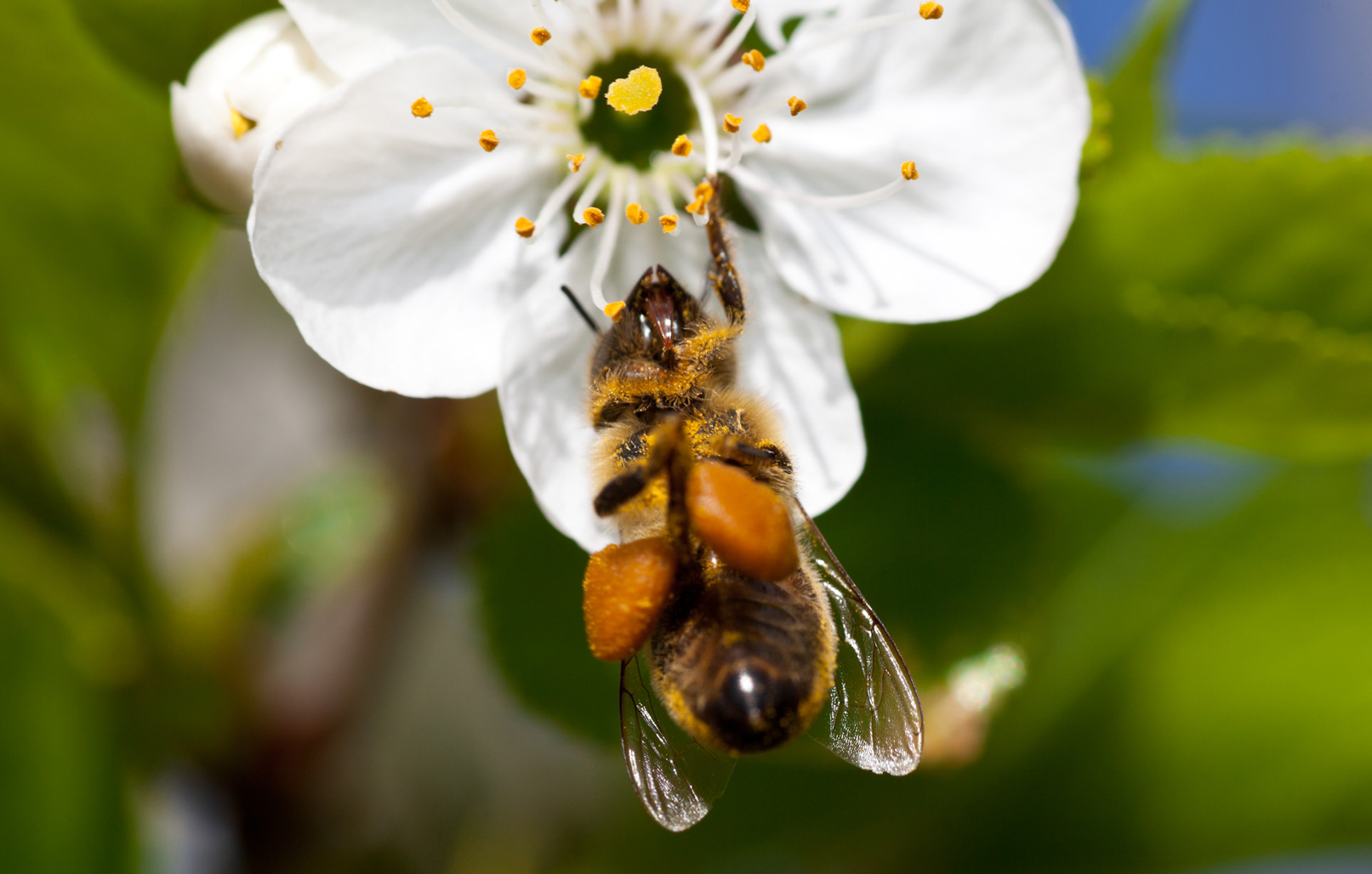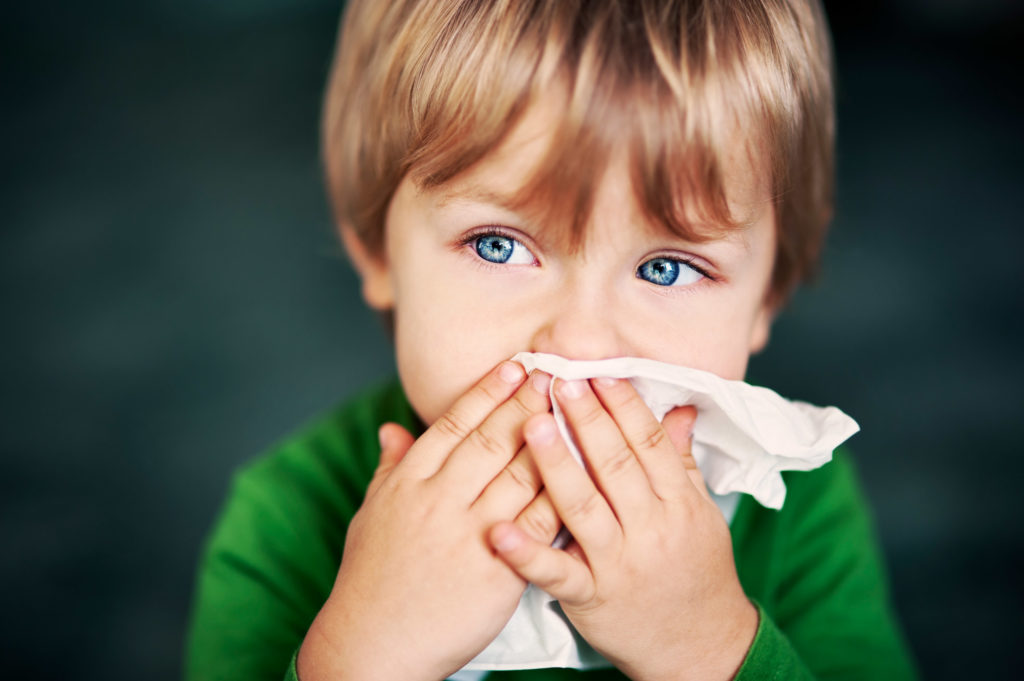High Pollen Levels Hit Miami

If you’re a Miami resident with seasonal allergies, then you may have noticed something unusual recently for this time of year: Walking outside may already be making you sniffle and sneeze.
According to Naresh Kumar, Ph.D., an associate professor of Environmental Health with the University of Miami, the reason is simple: Pollen counts are already high.
Dr. Kumar says that the counts are unusually high for this time of year. “Overall, we’ve had relatively high rainfall this winter along with mild temperatures,” he says. “That’s a good recipe for an early rise in pollen levels.”
What kinds of pollen are spiking?
According to pollen count tracking website Pollen.com, pollen levels in mid-February in Miami were hovering around nine or higher, which measures as “medium-high” on their scale. At the time, Miami ranked among the top five worst cities for allergy sufferers in the entire United States.
Juniper, bald cypress, and oak trees are all top contributors to Miami’s pollen levels at this time. Dr. Kumar adds that both palm tree pollen and ragweed pollen showed up in his test samples. The ragweed is especially problematic, as it’s one of the most common pollens nationwide.
The pollen fallout

If you suffer from seasonal allergies yourself, then you’re probably all too familiar with the repercussions of these surging pollen levels. Sneezing, stuffy nose, itchy eyes, nose and skin, and a sore throat are just a few of the possible symptoms.
E. Robert Schwartz, M.D., chair of family medicine and community health at the University of Miami Health System, says all of these symptoms can occur as the body’s immune system reacts to the foreign intruder — the allergens. “Pollen activates eosinophils, which are a type of white blood cell, in the body,” says Dr. Schwartz. “This immune response is what leads to all the symptoms of seasonal allergies, such as runny nose, sore throat, cough, and more.”
Your eyes can be significantly impacted by pollen allergies. “Seasonal allergies can directly cause allergic conjunctivitis and dry eyes,” says Anat Galor, M.D., associate professor of ophthalmology at Bascom Palmer Eye Institute. “Most people don’t make the connection between high pollen levels and their eye problems, but we’ve found in our research that it can play a major role in impacting the eyes.”
Preventing Seasonal Allergy Symptoms
Fortunately, there are several steps that you can take to minimize your exposure to pollen. Keep an eye on the pollen count and stay indoors if it gets too high. “If you have to go outside on high pollen days, there are HEPA masks that filter the air before you breathe it,” says Dr. Schwartz. “These aren’t like your ordinary hospital masks. They make a seal around your nose and mouth to limit exposure to allergens.”
Other strategies for minimizing your exposure to pollen include:
- Planning for outdoor activities in the evening. Pollen counts are often higher in the morning, so you may want to steer clear of exercise and yard work at that time. It’s typical for counts to go down as the day goes on.
- Avoiding the outdoors on dry, windy days. These are the days when pollen counts can be the highest. Pollen tends to decline after it rains, although it tends to come soaring back once things start to dry up.
- Being smart about outdoor activity. If you have a partner or older child in your house, then yardwork might be an enjoyable chore to delegate when pollen is at its worst. If you have to go outside, wear a HEPA mask to protect yourself. Also, be sure to remove your clothes and shower to remove any excess pollen afterward.
- Keeping pollen outside. If you’re already sensitive to pollen, then you certainly don’t want it inside your home. Keep it out by shutting doors and windows, investing in the proper furnace and vacuum filters, and not air-drying laundry outdoors.
- Wearing wraparound sunglasses. Dr. Galor says this reduces pollen exposure in the eyes.
Medication for pollen allergies
The other essential part of seasonal allergy management, of course, is preventing symptoms with drugs. In years past, Dr. Schwartz says that many allergy medications caused drowsiness, but modern antihistamines can prevent seasonal allergy symptoms with very few side effects. In addition to oral medications that prevent seasonal allergy symptoms, some nasal sprays and inhalers can help.
“It’s a good idea to visit your primary care physician to find the right allergy medication or combination of medications that will work best for you,” says Dr. Schwartz.
Wyatt Myers is a contributing writer for UMiami Health News.
Tags: allergies, Dr. Anat Galor, Dr. Naresh Kumar, Dr. Robert Schwartz, pollen in Miami, pollen levels
